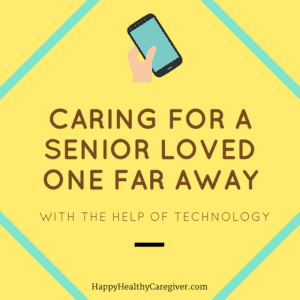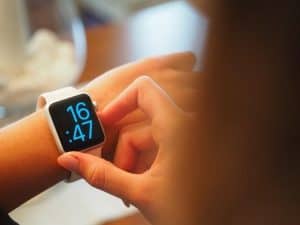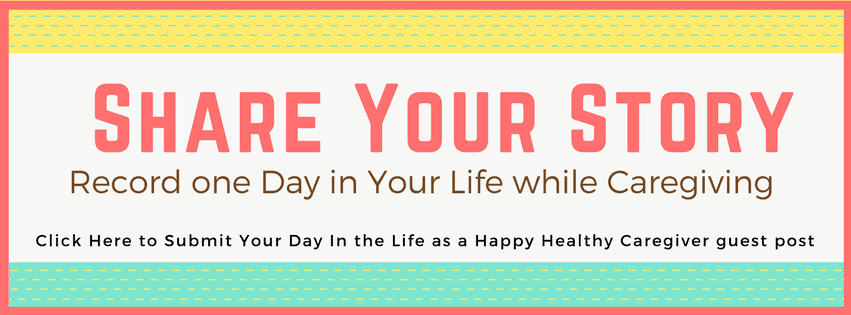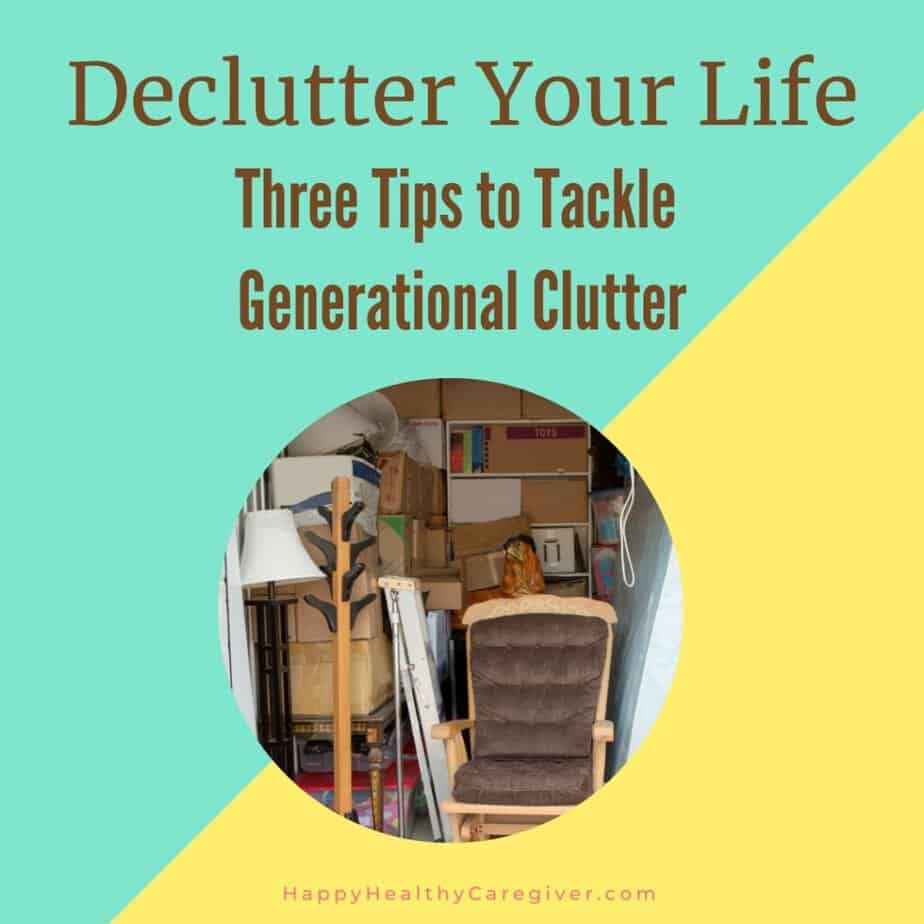a guest post written for Happy Healthy Caregiver by family caregiver Claire Wentz
As we age, people rely on the help of friends and family to check up on them and ensure they are healthy and safe. However, it’s not always possible for us to be nearby in order to drop in on our senior loved ones. Fortunately, technological advances and the growth of the sharing economy makes it easier than ever to get the services and products we need to act as caretakers from afar.

Preventing Loneliness
Senior isolation can have serious consequences on a person’s health. As outlined in the Washington Post, “Research shows that a lack of social connection and the feeling of loneliness and isolation is as damaging to one’s health as smoking 15 cigarettes a day.” The 40 percent of seniors experiencing loneliness on a regular basis are at higher risk of issues including cognitive decline, Alzheimer’s disease, stroke and obesity. While you may not be there physically to keep your loved one company, you can use technology to help stave off the negative effects of loneliness.
When you can’t be there in person, you can talk with your loved one face-to-face with the help of video chat. Just about every smartphone has a front facing camera and some sort of video communication application. However, a tablet provides a larger surface area that can be easier on a senior’s eyesight. Plus, they can use it for other daily activities such as reading the newspaper, checking the weather and playing with apps or games.

Providing Security
There are many reasons why you would want to beef up security around your senior loved one’s residence. For one, burglars are likely to target seniors, as they assume they are easy marks. Beyond security against criminals, you also want to ensure the proper channels are alerted in case your loved one is injured at home. Even the simplest fall can have serious implications. In fact, falls are the leading cause of injuries and death from injury among seniors in the United States.
Modern security systems are easier to use and more effective than their predecessors. Companies even make security system models especially for seniors that have medical alert capabilities included. Beyond the typical medical alert devices of yesteryear, manufacturers are now churning out smartwatches specifically tailored for seniors, as well. These sleek gadgets are discreet, while also providing features that help your loved ones monitor their health. Some versions even include GPS tracking that tracks a senior’s location if they become lost.
Finding Household Help
When a senior’s mobility starts to deteriorate, everyday chores can become a physical burden. Thankfully, the digital sharing economy can connect you with people in your senior loved one’s neighborhood that can help with just about any task you can think of. If your loved one needs to get from point A to point B but doesn’t need to be behind the wheel, rideshare apps connect them to independent drivers that are more affordable than taking a cab.
If their four-legged best friend is getting antsy being cooped up inside, a vetted dog walker is just a click away. There are various platforms that connect those in need with housekeepers and handymen. And any meal they could possibly want can be delivered to their doorstep while you can cover the bill from an app on your cell phone.
As we age, we depend on loved ones to check in on our health and safety. If you have a senior loved one you want to care for, but you live in another town, you can use technology to help. From preventing the health consequences of loneliness to making sure they have a hot meal at the end of the day, there are more tools than ever at your disposal.
To read more from Claire, visit Caring from Afar.
Further reading: Internet & Technology: A Guide for Older Adults




